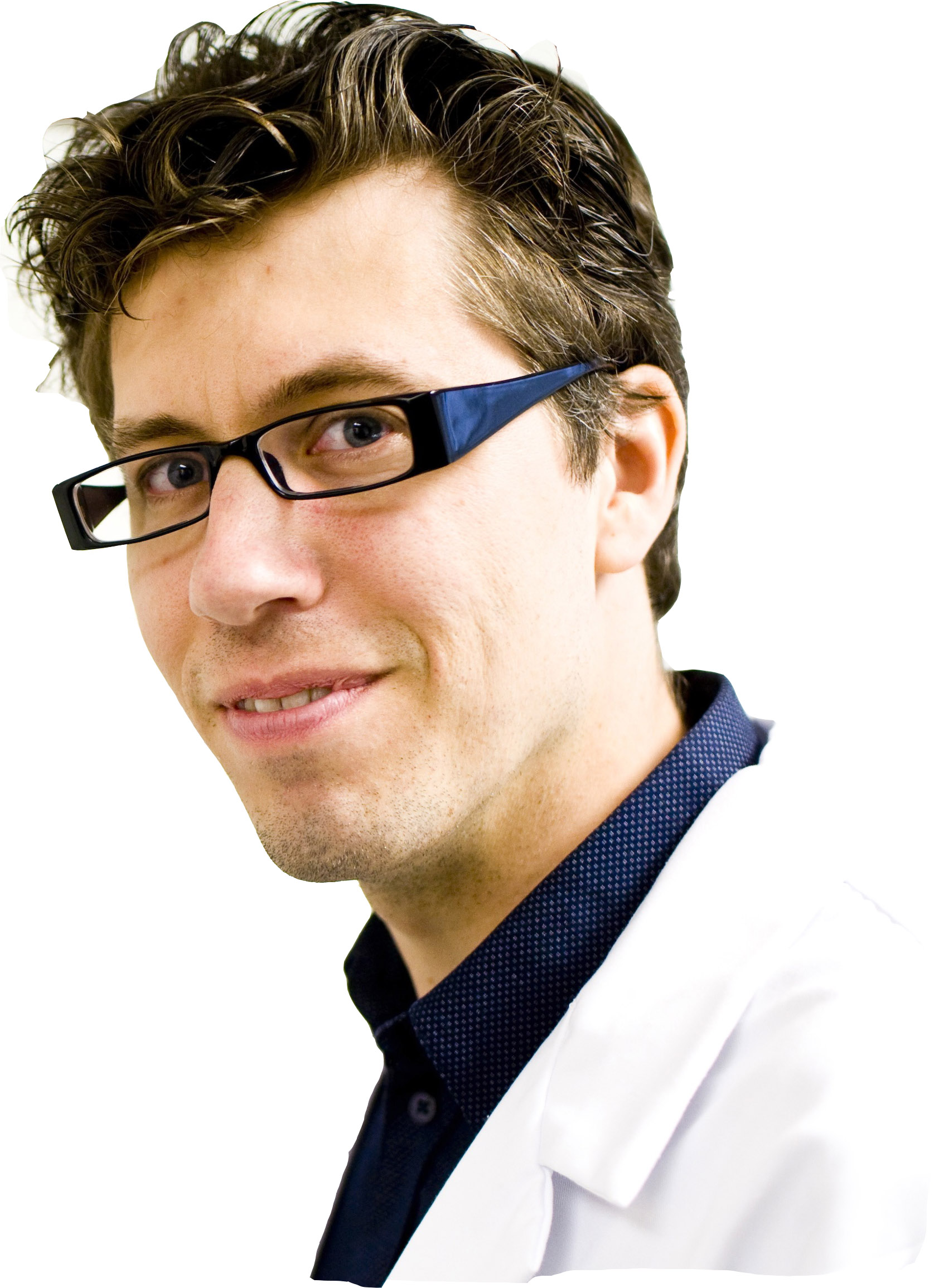Dr. Kording's (He/Him) is trying to understand how the world and in particular the brain works using data. Early research in the lab focused on computational neuroscience and in particular movement. But as the approaches matured, the focus has more been on discovering ways in which new data sources as well as emerging data analysis can enable awesome possibilities. The current focus is on Causality in Data science applications - how do we know how things work if we can not randomize? But we are also very much excited about understanding how the brain does credit assignment. Our style of working is transdisciplinary, we collaborate on virtually every project.
Over time the lab has made an impact across many fields including:
- Neuromatch movement: We cofounded the neuromatch movement which makes high level education and conferences available for free to thousands of students across more than 100 countries (Neuromatch)
- Causality in Neuroscience: We develop approaches that allow neuroscientists to discover causal relations. (introduction to quasiexperimental cauality)
- Policing science: We are finding image fraud (illicit image reuse) across millions of papers. (nature writing about us)
- How to write papers: Our writing guide is used by hundreds of thousands of people (paper), at >10k tweets possibly the most tweeted about paper across science.
- Deep learning and brains: Outlined a path to link those two areas (paper)
- Large scale xray tomography: Spearheaded approach to image large brain areas and segment cells/blood vessels (paper)
- Neural cryptography: Developed brain decoders that need no training data (paper)
- Mood and Behavior understanding: Shown how mobile phone data can provide insight into everyday behavior (paper)
- DNA ticker tapes: Proposed that cells could write a temporal history of their activity onto DNA (paper))
- Physics for massive brain recording: Calculated what is necessary to record from all neurons in the brain (paper)
- Predicting professor careers: Introduced data driven multifaceted career predictions (paper)
- Uncertainty in the brain: Extensively asked how the brain represents what it does not know (paper)
- Stevenson's law: Described that the number of simultaneously recorded neurons grows exponentially with a timescale of 6 years (paper)
- Dynamics of human memory: Shown that many ways of forgetting are actually optimal ( paper)
- Causal inference in human behavior: Demonstrated how the brain understand cause and effect for perception and action (paper)
- Bayesian brains: Shown that many behaviors under uncertainty are close to the ideal statistical processing (review)
- Statistics of the real world: Discovered how many aspects of early sensory brain areas optimize sparseness and stability (example)
See Konrad's CV or google scholar profile. Or visit the Lab page with all the up-to-date information on the research and the community.

Timeline
2020 Neuromatch
Neuromatch conferences draw >4000 people. Third version had about 1000 talks. Neuromatch Academy trains 8000 people in y1. Hiring ~200 TAs in y1, ~300 TAs in y2. At this rate, we train a significant proportion of all neuroscientists.2019 Causality
Much of the lab is now interested in causality. Multiple grants.2017 UPenn
Konrad starts as PIK (Penn Integrates Knowledge) professor at UPenn.2015Neurotechnology
Two new U01s from the NIH: xray tomography of brains, and massive scale electrical recordings. Emphasizing the lab's emerging focus on new neurotechnologies.2015Full Professor
Promotion to professor. Years of work. And a loss of a word in the title.2015Automatic Anatomy
New paper in elife shows how connectivity and many other aspects of neurons can be combined to identify cell types. [link] Major future interest for lab.2015New big data sources
In collaboration with Argonne national lab and with the group of Andreas Schaefer, Konrad is proposing new ways of generating huge amounts of data.2014RIC CI chair
RIC produces a new title for Konrad with a helpful new funding stream.2013 DNA recording of neural activity
With a new transformative grant by the NIH aimed at recording all activities in the brain onto DNA there is a new focus on high risk high reward projects.2010Tenure
Celebrating a great time at Northwestern.2009 An NIH funded grant
The project "Role of uncertainty for motor learning and adaptation" gets funded by the NINDS.2006Assistant professor and Northwestern University and the Rehabilitation Institute of Chicago
Mostly focusing on computational motor control and its use for rehabilitation. Can not suppress the interest in neural data too long.2004-2006 Postdoc in computational cognitive science
Normative models for behavior and topics models for text processing. Extensive learning about statistics.2002-2004Postdoc in computational motor Control
Normative models of motor control. And extensive experimental tests of these ideas. With Daniel Wolpert at UCL London. Learning statistics and machine learning from Peter Dayan, Maneesh Sahani and others at Gatsby.2001 PhD in Physics
The doctoral thesis focused on simulating groups of neurons, and on calculating how their properties could be optimally matched to the statistical properties of the world.
Contact
404b richards
hamilton walk, Philadelphia, PA 19104
Bioengineering and Neuroscience at UPenn
tel.: 857 928 5370
email: koerding@gmail.com
